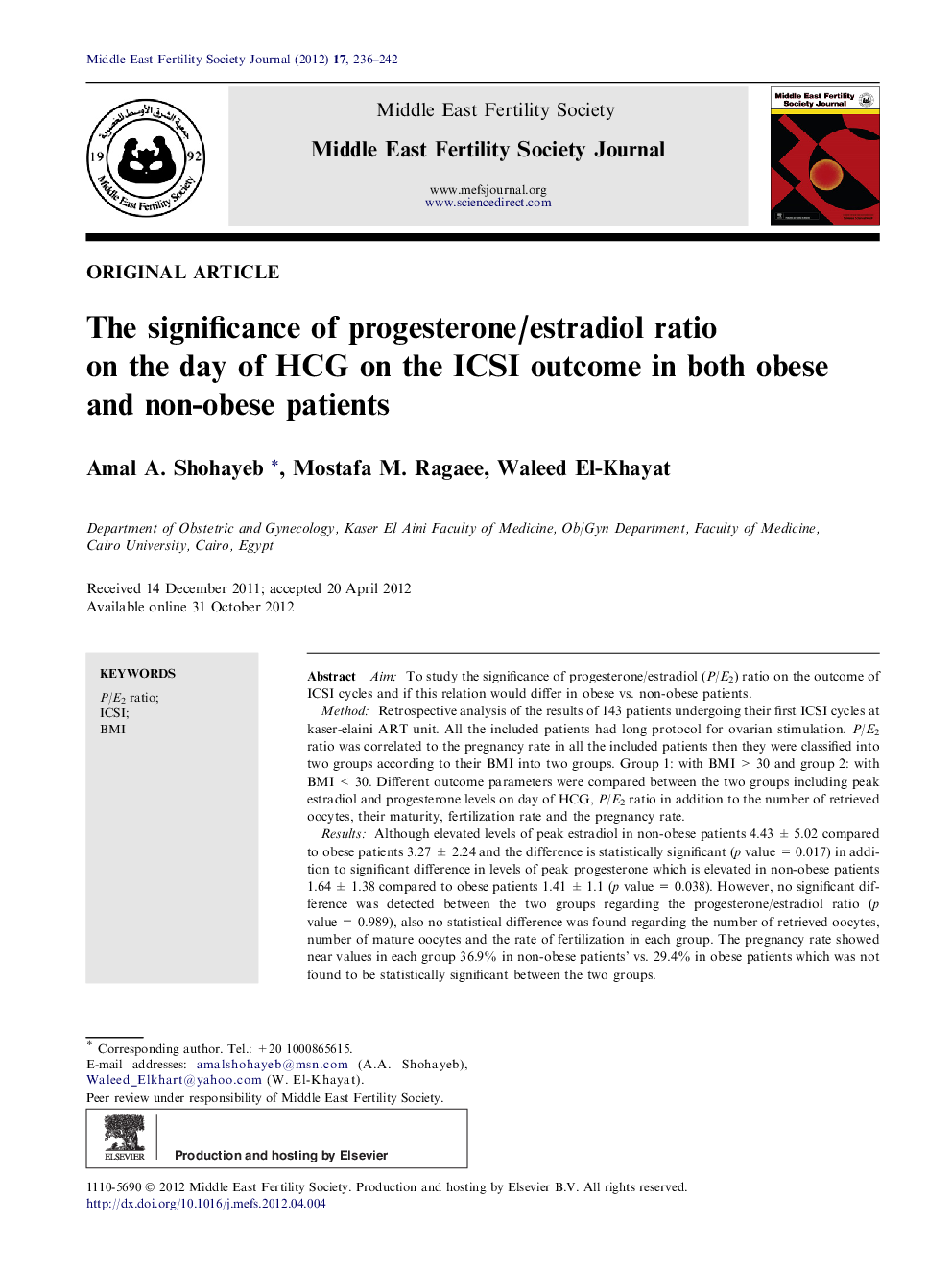| Article ID | Journal | Published Year | Pages | File Type |
|---|---|---|---|---|
| 3966354 | Middle East Fertility Society Journal | 2012 | 7 Pages |
AimTo study the significance of progesterone/estradiol (P/E2) ratio on the outcome of ICSI cycles and if this relation would differ in obese vs. non-obese patients.MethodRetrospective analysis of the results of 143 patients undergoing their first ICSI cycles at kaser-elaini ART unit. All the included patients had long protocol for ovarian stimulation. P/E2 ratio was correlated to the pregnancy rate in all the included patients then they were classified into two groups according to their BMI into two groups. Group 1: with BMI > 30 and group 2: with BMI < 30. Different outcome parameters were compared between the two groups including peak estradiol and progesterone levels on day of HCG, P/E2 ratio in addition to the number of retrieved oocytes, their maturity, fertilization rate and the pregnancy rate.ResultsAlthough elevated levels of peak estradiol in non-obese patients 4.43 ± 5.02 compared to obese patients 3.27 ± 2.24 and the difference is statistically significant (p value = 0.017) in addition to significant difference in levels of peak progesterone which is elevated in non-obese patients 1.64 ± 1.38 compared to obese patients 1.41 ± 1.1 (p value = 0.038). However, no significant difference was detected between the two groups regarding the progesterone/estradiol ratio (p value = 0.989), also no statistical difference was found regarding the number of retrieved oocytes, number of mature oocytes and the rate of fertilization in each group. The pregnancy rate showed near values in each group 36.9% in non-obese patients’ vs. 29.4% in obese patients which was not found to be statistically significant between the two groups.ConclusionP/E2 ratio cannot be used as a reliable predictor for pregnancy rate, and this is not different between obese and non-obese patients. No significant difference was found between obese and non-obese patients regarding peak progesterone, estradiol level on day of neither HCG nor other ICSI outcomes including number of retrieved oocytes, fertilization rate or the pregnancy rate.
